Rheumatoid arthritis is an autoimmune disease. It is a type of arthritis where your body’s immune system attacks the healthy tissue lining your joints, which can lead to pain, stiffness, swelling, and loss of functionality. It can also affect other parts of your body, such as your skin, eyes, lungs, heart, and more.
More than 1.3 million people in the United States are affected by rheumatoid arthritis. While there is no cure, most people can live a healthy, active lifestyle with proper treatment. Some of the effective treatment methods for RA are physical therapy and occupational therapy.
Wasatch Peak Physical Therapy provides treatment for rheumatoid arthritis. Our physical therapists and occupational therapists are here to help you live your life to the fullest.
What Are The Symptoms Of Rheumatoid Arthritis?
RA presents differently in different people. It is best to catch and start treating RA as soon as possible in order to prevent permanent damage. People with rheumatoid arthritis can experience flares, when their symptoms worsen, and remission, when their symptoms temporarily improve.
Some of the most common symptoms of rheumatoid arthritis include:
- Tender, swollen joints
- Joint stiffness that is usually worse in the mornings and after inactivity
- Fatigue
- Fever
- Loss of appetite
- Weight loss
- Weakness
- The same symptoms on both sides of the body (such as pain in both hands)
Since the earlier RA is diagnosed, the better, it’s good to know the warning signs. Typically, people will experience pain and stiffness in their smaller joints first, and then it starts to spread throughout their body.
The early warning signs of RA include:
About 40% of people with RA also experience symptoms in areas other than their joints. Symptoms can come and go. Over time, RA can lead to deformity by causing your joints to shift out of place.
What Causes RA?
It’s unknown what the exact cause of rheumatoid arthritis is. While the cause is unknown, there are known risk factors that increase your risk of developing rheumatoid arthritis.
Some of the risk factors for RA include:
- Sex. Women are 2 to 3 times more likely than men to develop RA.
- Age. While RA can begin anytime, it’s most common in adults in their 60s.
- Genetics. There is evidence that autoimmune disorders, like RA, can run in families.
- Smoking. Smoking can both increase your risk of developing RA and make the condition worse if you already suffer from it.
- Obesity. The more obese a person is, the higher their risk for RA.
If you have persistent swelling and discomfort in your joints, you will want to schedule an appointment with your doctor. They will be able to diagnose your condition and provide you with appropriate treatment options.
Treatment Options For RA
There are multiple treatment options available to you if you suffer from RA. The goal of treatment is to reduce your joint pain and swelling to slow or stop damage. This also improves your overall quality of life.
Depending on your condition, your doctor may recommend: medication, dietary changes, physical therapy, occupational therapy, surgery, and more. While RA does not go away, treatment can make your condition more bearable.
Physical therapy can help because you should maintain a modest level of activity to prevent joint stiffness and muscular atrophy. Your physical therapist will work with you in order to create an individualized treatment plan that can help to relieve joint pressure, maintain a healthy weight, and educate you on helpful lifestyle changes.
Maintaining a healthy body weight will help reduce stresses on weight-bearing joints. Aquatic physical therapy can be a resource as you will be able to exercise in a reduced weight-bearing situation. Splinting and assistive devices can be beneficial at times to relieve pressure on inflamed joints, as can education on appropriate stretching, exercising, and diet.
Occupational therapy helps you with the skills you need to go about your day-to-day life, such as dressing yourself.
Wasatch Peak Physical Therapy can help you with part of your treatment for RA. Contact us today to learn more about how our physical therapists can work with your medical team for the most effective treatment plan for you.
